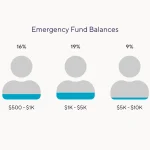
Seniors face specific financial challenges, including budgeting for long-term healthcare costs and preparing for end-of-life care. They also have special concerns with retirement planning and social security benefits.
Working with a certified senior financial advisor can help you navigate these complex issues and plan for the future. Make sure to choose someone who can truly help you reach your goals.
Budgeting
Budgeting is a must for everyone, but it is especially critical for seniors. They have to plan for a variety of living expenses and unpredictable retirement costs that can change drastically in a short period of time.
Inflation can wreak havoc on the cost of basic necessities, and Social Security benefits are often interrupted by inflation.
Managing finances as a senior can be difficult, but it can be done. There are many tools available online for seniors to help them develop a budget that works best for their lifestyle.
Inflation
When it comes to financial planning for seniors, inflation is one of the major concerns. This is because even the smallest price increase can erode purchasing power.
Inflation is defined as a broad rise in prices across the economy, not just for one specific item or service.
Retirees are often affected more by inflation than other consumers, due to the fact that they tend to spend a larger proportion of their income on goods and services that are directly impacted by inflation.
Retirees are also more likely to be on fixed incomes, making price hikes a much more noticeable impact on their budgets. That’s why it’s important to make sure that your retirement savings are prepared for a potential spike in inflation.
Taxes
Taxes are one of the main sources of money that government depends on to fund public programs, work and services. This includes education systems, pensions for the elderly, unemployment benefits, transfer payments and subsidies.
Many senior citizens are able to take advantage of several tax breaks that reduce their tax liability. This is particularly important for retirees who may be on a fixed income.
Taxes help governments pay for many important programs, including roads and public libraries. They also provide funds for public safety, such as police and fire departments.
Insurance
Life insurance is a critical part of financial planning for seniors. It can help pay for funeral expenses, medical debt, loss of income and more.
A good insurance policy can also boost other savings goals, such as a home down payment or college tuition. This can be a great motivation to save early, so you’re prepared for retirement or other big milestones.
Life insurance for senior citizens can also provide a way to leave money to loved ones in the future, without worrying about inheritance taxes. Many people choose whole or universal life insurance coverage for this purpose.
Investments
One of the most important factors in financial planning for senior citizens is the investment of their retirement savings. This should not be taken lightly, as a poor investment can cause a significant loss of money in the long run.
A safe way for older adults to invest their savings is through fixed annuities and dividend-paying stocks. These investments provide a monthly income that keeps up with inflation, and they are guaranteed for the life of the account holder.
These accounts can be purchased through a 401k, IRA or other tax-advantaged plan. They are FDIC-insured and may offer higher interest rates than traditional savings accounts. They are also convenient and easy to access, especially for emergencies.


